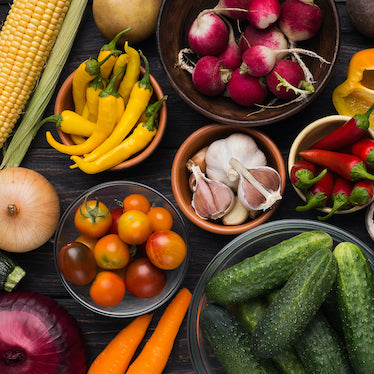When following a new diet, it can be challenging to know what foods do and do not fall within the confines of that eating pattern. This can be especially difficult in the case of a highly restrictive diet like the raw food diet. As the name suggests, the raw food diet requires you to eat only raw food.
Although, technically, most advocates say that the food simply cannot be heated to more than 115 degrees Fahrenheit. The theory behind this approach is that cooking food at high heat – or any other form of processing, including pasteurization – destroys many of the beneficial nutrients and enzymes contained in the ingredients.
For the most part, raw fooders stick to a largely vegetarian diet although some do eat raw eggs, meat and fish. Clearly, the raw food diet requires plenty of planning and know-how in the kitchen to be able to meet all your nutritional needs within all those rules. Juicers and other special pieces of cooking equipment are also highly recommended.

With all of these challenges, then, it's really not a big surprise that some experts report that raw fooders see their caloric intake drop by as much as half when they make the switch. For the athlete, however, this extreme reduction in caloric intake can make thing difficult in the gym.
This is especially true if you aren't getting enough protein – which can be especially challenging with this diet. How, then, can you make it work?
Nutritional Tools
Raw vegan protein powders are an extremely helpful tool in this endeavor. While many protein powders – including those derived from dairy like whey and casein - are pasteurized, heated and otherwise harshly processed, this isn't always the case.
Naked Nutrition, example offers several raw vegan protein powders that have never been exposed to high temperatures. And because these products are always sourced from organic, GMO-free plants, they will even be allowable by the most dedicated raw food practitioner.
But how do these powders differ from simply eating the food?
First, they are protein powders. Which means that they have – in the gentlest way possible – been concentrated to contain larger quantities of protein than a reasonable portion of the whole food would. They are not simply grouped up versions of the plant.
Protein powders also offer a level of convenience that standard foods often cannot. Apart from mixing the powder with water, little more preparation is necessary. So, while protein powders should not completely replace food in your routine, they can be a helpful complement to it.
If you have a little more time to invest, raw vegan protein powders can also easily be tossed into the blender with other ingredients to make filling, protein and nutrient-rich smoothies.
These raw vegan protein powders, then, can be a useful resource for raw fooders to have on-hand in order to help fill some of the nutritional gaps in their diet.







